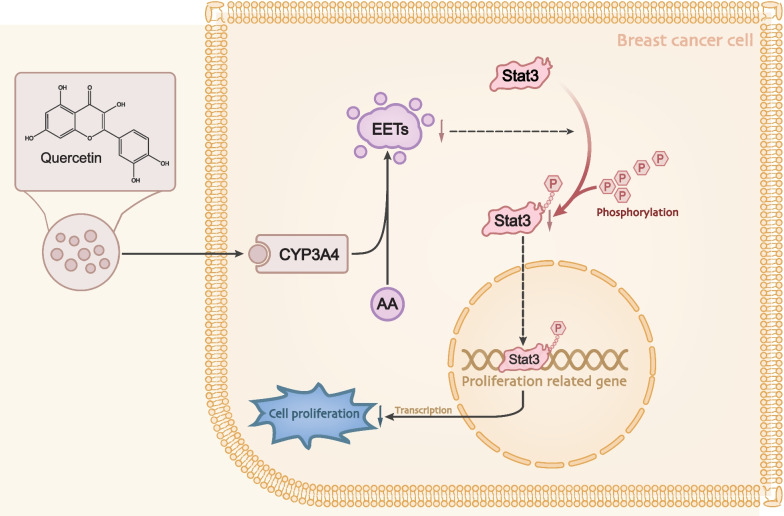Fig. 7.
Molecular mechanism schematic diagram of Quercetin inhibiting the metabolism of arachidonic acid and thus inhibiting the progression of breast cancer by inhibiting CYP3A4 activity. Quercetin can reduce the expression of cell proliferation marker protein PCNA, significantly inhibit the expression of cell cycle protein p21, and significantly up-regulate the expression of PARP (cell apoptosis marker protein) and caspase3. At the same time, it also has an up-regulating effect on the expression of cleaved-PARP and cleaved-caspase3 markers of cell apoptosis. Quercetin inhibits the migration, invasion, and adhesion of breast cancer cells. Mechanistic studies indicate that Quercetin can inhibit the activity of CYP3A4 in breast cancer cells, reduce the production of EETs, and the decrease in intracellular EETs content can inhibit the phosphorylation and nuclear translocation of Stat3 (Tyr-705), inhibiting tumor cell growth. Quercetin may inhibit tumor growth by regulating the PCNA/p21 and PARP/caspase3 pathways

